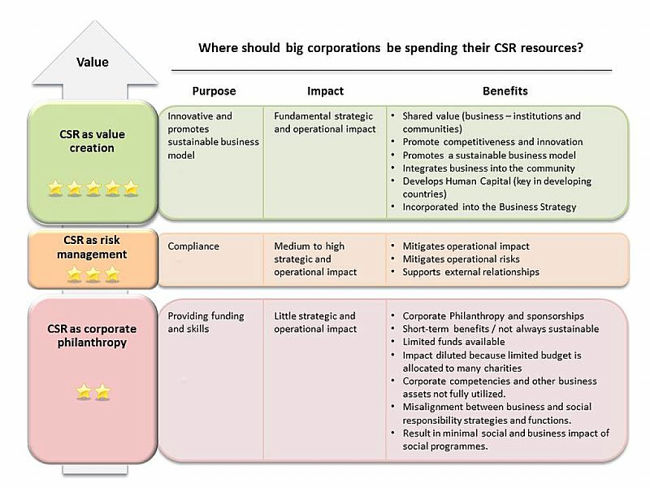Does Business Ethics, Social Responsibility Work in Retail Businesses?
The Australian Supermarket chain 'Coles' recently adopted an unusual strategy to win back market share from its major competitor, '
Woolworths', based on adopting the moral high ground for its products. There are many similar examples throughout
the world. But does this strategy work in attracting more sales despite increasing costs and adding layers of complexity.
Coles has committed itself to:
- not sell any pork produced using sow stalls by 2014,
- phasing out eggs laid by caged hens in its house-branded lines by 2013
- exclusive use Australian vegetables in its frozen section.
- no longer selling beef grown using hormone growth promoting substances (already implemented).
New Coles management staff derived from the UK Supermarket company 'Tesco' has provided the impetus for these measures and they appear
to be working well.
Sales of Coles pork products increased 10 % when it announced the move away from of sow stalls,
despite the measure not being implemented for three years.









Coles was took the lead on eggs by slashing house-brand free-range prices by 18 % as well as promising to phase out house-brand eggs from caged poultry. Despite the price cut being matched by Woolworths and Aldi, the sale of house-brand eggs rose more than 10%.
This initiative is already putting pressure on the suppliers who are concerned about prices and changes required for the practices used by the major producers.
It has been reported that Coles reduced the shelf price of free-range eggs by cutting its own profit margin - it didn't ask farmers to take the hit.
However, ethical and cleaner products do cost more to produce and so who ultimately pays the extra price? Also the challenge is to ensure that the suppliers practises generally meet the new standard as the demand grows for ethical products and the old practices are phased out.
Will the other companies follow suit and if so will there be a price increase across the board?
The battle for market supremacy involves the big two winning over the shoppers who are prepared to change where they shop. Market research has suggested that ethical considerations are one of the reasons shoppers switch. However, price is still the most important driver for shoppers decision about where they shop. The organic food market is a good example. More people will shift to organic produce, if and when, the price drops.
Australian food producers need to ram home that their food is cleaner, safer and more ethically produced than most imports to win the increasing battle with imports in the market place.
The marketing of Fairtrade Goods is a good example of a more ethical product and consumer responses. The aim of Fairtrade goods is to ensure producers in developing countries get a reasonable price and workers receive decent wages and have good working conditions. Environmentally friendly products with the Rainforest Alliance seal are also popular and have received a good response. Popular Fairtrade products include coffee and tea, cocoa and chocolate, bananas, cotton garments and sports balls.
A recent report, 'Sustainable Australia', claimed that 90 % of people interviewed agreed that businesses should be investing a lot more in sustainable practices, regardless of the state of the economy. And 81 % also believed that businesses could still operate profitably while acting in ethical ways responsible to the environment and providing for the welfare of workers.
In Australia, Fairtrade has shown excellent growth. In 2003 Australians only spent $151,000 on Fairtrade goods; last year, it was more than $23 million. Coffee sales alone account for more than $17 million.
Some big names using Fairtrade products include Virgin, Jetstar, Mac Donalds and BP, which uses fair trade coffee at all of its Wild Bean cafes.
In the UK, Tesco aims to buy and sell products responsibly. All the farms that supply to Tesco have to meet their livestock standards and codes of practice. All of the animals that arrive for processing have a health check to ensure they have been appropriately raised. They do not allow the use of sow stalls in pig production anywhere. They have improved welfare standards at 14 poultry suppliers in six countries, accounting for about 95% of overseas poultry purchases. The do not have an outright ban on cage produced eggs and intensively farmed poultry.
However a survey by marketing consultancy firm, Cohn and Wolf, showed that consumers will be much less likely to buy ethical foods and premium grade foods after the recession in the UK.
About 70% of shoppers interviewed said they intended to buy less organic food in the UK after the recession; 61 % said they would pay less for ethically sourced foods; and 73 % said they would pay less for premium private label goods.
Tesco says these findings “fly in the face” of their own surveys.
It remains to be seen whether
the Coles strategy will work in the Australian Market.
Does It Pay To Be Good?
Various surveys have shown that customers are willing to pay a premium for ethically produced goods.
But is that what happens when they actually buy goods?
A number of studies have conducted experiments designed to answer these questions, including:
Does It Pay To Be Good? By Remi Trudel and June Cotte January 8, 2009
The study was based on the notion that a large consumer products company decides to use a socially responsible strategy in contrast with their competitors.
The company would sell fair-trade coffee and chocolate, ethically produced goods.
They would also offer locally produced organic fruits, meat and vegetables.
Knowing that ethical sourcing was likely to increase costs the company needed to know how much extra, consumers would be willing to pay?
Also do all the products sold need to be fair trade if the company wants to maintain its socially responsible positioning?
The conclusions from the study were:
► Consumers will pay premium prices for ethically produced goods, suggesting than socially responsible behavior offers financial rewards, provided the extra costs are covered in the increased prices.
► Being seen to be acting socially responsibly in retail may mean a seller can charge more for your products and not lose sales.
► Consumers will, and do punish producers and sellers of unethically produced goods that breach social responsibility standards.
► Consumers expect major discounts for unethically produced products.
► There appeared to be no threshold for the degree of ethicalness and products with higher social responsibility scores did not sell better than products with a lower score. Simply stating ethical responsibility was enough. This suggests that customers are mostly not very sophisticated with their research. They may simply be driven by the 'political correctness; of doing the 'right thing'.
► Retailers should strive for a socially responsible identification and labeling strategy for their products as consumers will pay a premium price for ethically sourced and produced products, provided they are clearly labeled.
► Retailers should be aware of what consumers are expecting in terms of 'political correctness'.
► Avoid products that are known by consumers to be unethically produced or offer them a discounted prices. There is a range of views and willingness to pay among the consumers.
► The degree of ethicalness is less important and this should guide advertising.
► Segment the goods presented and offer consumers and range of products that are clearly labeled.